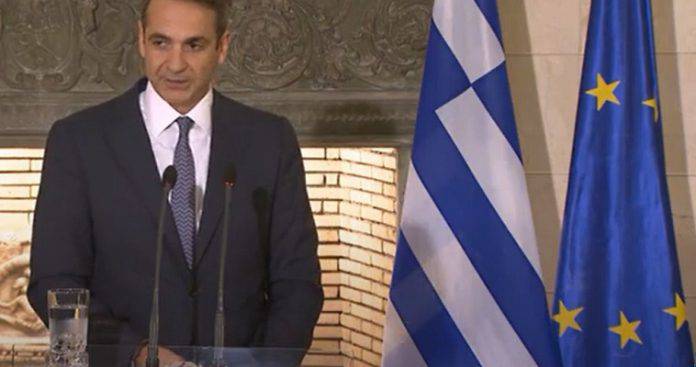Alexandros Tarkas: Greece on a slippery slope in NATO – Luns Ruling is alive and well
09/10/2020
Prime Minister Kyriakos Mitsotakis, despite the “revolution” of criticism of NATO’s equal distance policy towards Greece and Turkey (the so-called Luns Ruling since 1984), failed to get Secretary-General Jens Stoltenberg on the right track for a “military deterrence mechanism” in the Eastern Mediterranean.
Jens Stoltenberg, who does not want to link his tenure to the collapse of the southern wing of the Atlantic Alliance following a Greek-Turkish conflict (or Ankara’s further slide towards the Kremlin), is more flexible than other mediators, such as Chancellor Angela Merkel.
He publicly suggested at the end of August that informal talks be held between “selected” (unknown how) NATO allies in the Mediterranean, and when Athens expressed justified anger, he adjusted his tactics. He accepted the restriction of talks only between Greece and Turkey, while achieving the start of contacts at the military level, which until recently seemed unthinkable.
He then commissioned NATO Deputy Chief of Staff Scott Kineswarten, not US Deputy Chief of Staff Stuart Pitch, to mediate at NATO headquarters, so that mediation would indirectly carry the increased weight of the United States. The meetings ended, on October 1, in a technical text of two paragraphs. And this is exactly where the prime minister’s mistakes begin.
Suspicion of secret diplomacy
The text has not been made public (it has simply been described in an Alliance press release), but – according to credible sources – it was communicated to all 30 NATO members! The practice is offensive, as Icelandic Prime Minister Catherine Jacobsdottir and “Northern Macedonia” Zoran Zaef are aware of the agreement, but not the former Greek prime ministers, the official opposition leader, and party leaders. In this way, the suspicion of secret diplomacy is maintained and the credibility of the process and the public’s trust in the Alliance are undermined.
According to the same sources, the existing text is only the beginning of a long process of adoption, as well, of other mechanisms for controlling military activities and military drills in the Eastern Mediterranean. Kyriakos Mitsotakis did not specify, either to Jens Stoltenberg, or publicly, whether he would accept a discussion on additional mechanisms. However, this is a very clear pursuit of the Turkish side, which (for different reasons) is also welcomed by NATO.
Jens Stoltenberg, in statements in Ankara and Athens, directly linked the deterrence mechanism to exploratory contacts, stressing that “it can create room for diplomatic efforts.” At this point, too, the Prime Minister did not act repressively, delimiting the framework of each individual process and distinguishing their content.
The omission is very serious given that Ankara is not giving up its intention to raise the issue of demilitarization of the islands in exploratory contacts. In addition, the Prime minister’s office (contrary to the Foreign Ministry’s plan) was forced to accept the announcement of the deterrent mechanism before the European Council.
The “ball” in General Floros‘s court
The Prime Minister, perhaps for fear of internal political costs, did not entrust the responsibility for signing this and future NATO agreements to Foreign Minister Nikos Dendias or National Defense Minister Nikos Panagiotopoulos. No need for a debate in the Council of Ministers or the Parliament, as in 1980 with the reintegration into NATO and in 1999 with the allied operations in Kosovo.
The PM’s office and the two ministries wanted, in fact, to transfer the responsibility of the signatures to the head of Armed Forces General Staff, General Konstantinos Floros. They changed tactics when they realized that Turkey had the same preference and when they realized that the legislation, in any case, does not authorize the chief of Staff to conclude transnational agreements. As a result, the hybrid process was chosen with the mechanism not being signed bilaterally, but described in a NATO document approved by all allies (and not just “selected”).
In general, the only excuse of the government for its – present and future – involvement in the negotiations on “mechanisms” is to avoid blaming Greece for the refusal of dialogue. This, however, is not an alibi for the content of the mechanisms! After all, the PM’s bargaining power would be greater if Kyriakos Mitsotakis did not rush, from the beginning of his term, to offer “earth and water” to China, which is now a bigger rival for the Alliance than Russia.





